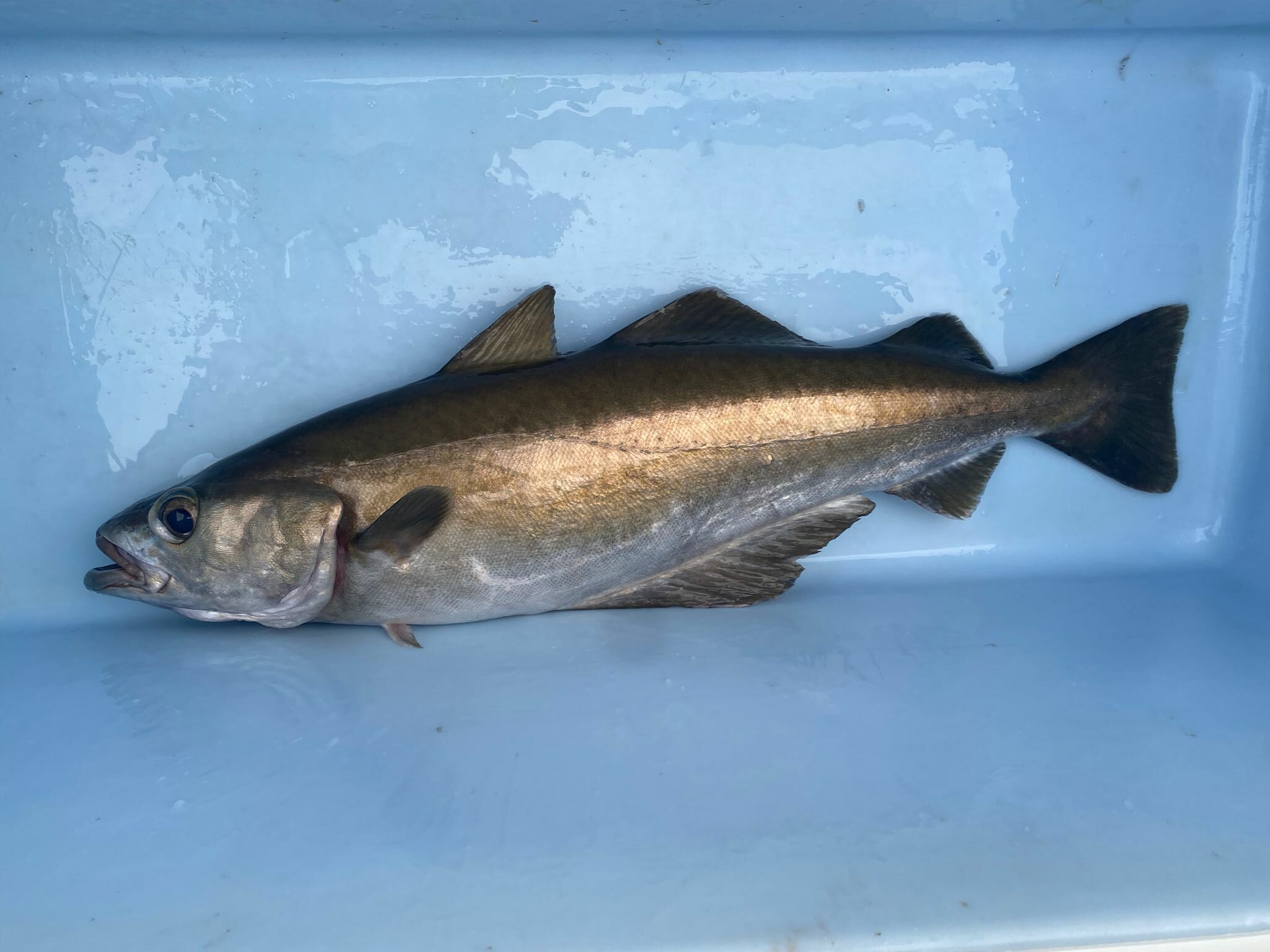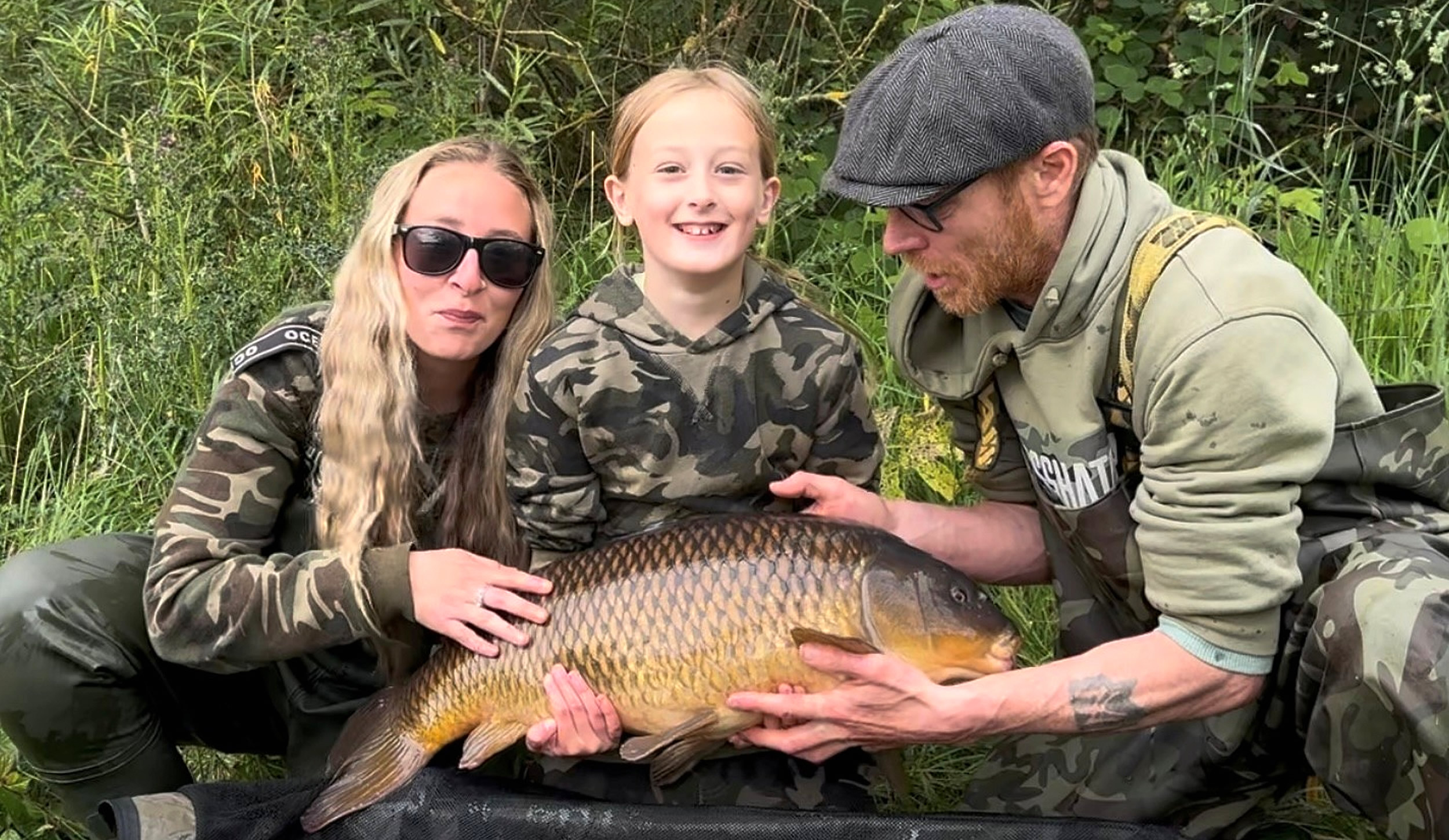
Marine
Angling Trust Strongly Oppose Pollack Recreational Fishing Restrictions
The Angling Trust oppose any restrictions for recreational sea anglers following this year’s ICES advice for a 0 TAC (Total Allowable Catch) in 2024 for pollack. Looking ahead to this year’s UK-EU bilateral discussions our eyes will be on the UK government to stand up for the interests of recreational sea anglers as was promised when the UK took control of our own waters having left the EU.
The key scientific body for assessing the health of European and UK fish stocks, the International Council for Exploration of the Sea (ICES), recently produced advice for pollack catches in the Celtic Sea and English Channel for 2024. ICES has advised that according to the MSY (maximum sustainable yield) principle the TAC (total allowable catch) for 2024 should be set to zero.
The Angling Trust believe that the assessment is too uncertain, and recreational fisheries too data-deficient, to even consider management of the recreational sector. While the advice states “recreational catch is likely to be a large component of the total catch” it also states “due to lack of data, recreational catch is not included in the assessment” and that the “stock structure is poorly defined.” Likewise, the assessment acknowledges that “The surveys used to calculate the index do not target preferred pollack habitat, and the index is based on few samples.”
Given the ICES advice, pollack will likely be a hot topic amidst this year’s bilateral discussions of fishing opportunities with the European Union. These negotiations are not open for public consultation and are due to be completed in December 2023. Following consultation with our Marine Advisory Group and Sea Angling Voluntary Group the Angling Trust position is that there should be no restrictions for recreational sea angling within the pollack fishery following this year’s negotiations.
The Angling Trust believe restricting angling would be futile and unfair in comparison with dealing with far more destructive and high-volume forms of fishing like wreck netting and stamping out illegal and unreported fishing. We argue that these other forms of fishing are having a far larger impact on the state of the pollack stock in the English Channel. Without enforcement any restrictions placed on the fishery would also be redundant.
If the pollack fishery was closed to recreational anglers then the socio-economic repercussions for the recreational sector, and wider coastal communities, we believe would be substantial and deliver a significant blow to charter boats and private boat anglers throughout the English Channel. This would make a mockery of Defra’s commitments to recreational angling and coastal communities.
The Angling Trust remain committed to fighting for fish, fishing and the environment. We share the government’s ambition for “World-Class Fisheries” and thriving coastal communities, but the Angling Trust will continue to push government for recognition of the socio-economic value of angling, for investment into our sector and against unnecessary restrictions on our sport.
The Angling Trust will lobby Defra hard at any given opportunity to defend anglers from any recreational restrictions that may arise from this year’s UK-EU bilateral discussions.
What about Pollack FISP?
Recreational anglers and charter skippers have expressed concern over the state of pollack – a recreationally important fish – in the English Channel with fewer large specimens and a lower abundance of pollack on many wrecks in recent years. Recognising the limitations of the ICES pollack stock assessment, the Angling Trust joined a Defra-funded Fisheries Industry Science Partnership project with the University of Plymouth, Professional Boatman’s Association and the University of York to collect valuable data on pollack such as spatial distribution (via acoustic telemetry), age, length, catch per unit effort (CPUE) and socio-economic value to the sector. This database is rapidly building, with over a year of CPUE data already collected and over 8000 fish measured. Pollack FISP has been positively received by anglers and skippers on the ground. You can view our Virtual Sea Angling Forum with Pollack FISP here.
To be clear, the Pollack FISP partnership or the Angling Trust were not involved in this year’s ICES advice on pollack.
The data that recreational charter skippers and anglers have collected via Pollack FISP is already starting to fill many knowledge gaps – even about the basic biology of pollack. The quality of information that has been provided is hugely impressive and exemplifies the valuable role recreational anglers and skippers can play in evidencing the socio-economic contributions of our sport and learning more about our seas.
As a newly named stakeholder in UK fisheries management under the Fisheries Act (2020) data collection in collaboration with the sector to support the development of recreational fisheries is more important than ever and can assist us in challenging poorly evidenced policy and management decisions.
Glossary
Maximum Sustainable Yield (MSY) – a theoretical concept used widely within fisheries management. It refers to the highest amount of a target fish catch that can be taken from a fishery without compromising its ability to reproduce and replenish in the long run. MSY aims to optimise fishery productivity while ensuring the sustainability of the fish population.
Total Allowable Catch (TAC) – the maximum quantity or weight of a particular fish species or group of species that can be legally harvested from a specific fishery or fishing area during a given time period, usually a fishing season or year. TAC is set by fisheries management authorities to control and regulate fishing activities and prevent overfishing, ensuring the sustainability of fish populations and the wider marine ecosystem.
The views expressed in this article do not necessarily reflect the views of all partners of Pollack FISP.
As recreational sea anglers, it’s essential to stay informed and engaged in matters that directly impact the health of our ocean and the future of our sport. The Angling Trust is committed to fighting for fish, fishing and the environment.
Become a member of the Angling Trust today and pledge your support.
Make sure you subscribe to our newsletter and join our Facebook group to be the first to know about the latest sea angling policy developments.
You might also like

SENSAS FUTURE NETWORKS DO THE DOUBLE DOUBLE IN YOUTH…

NATIONAL GLORY FOR RAMMY AT LINDHOLME

Three British record fish claims ratified

Making plans for kids and holiday activities? Fun, safe…

Get Fishing Fund – Funded Project: Fishing Opens New…

Climate change fuelling dangerous river pollution across England and…

NEW BLOG: The best thing about fishing – from…

Ethan gets his Gold Get Fishing Award – young…

Summer of Fishing 2025 is here – get into…

Get Fishing Awards were at Bristol Festival of Nature…

VIDEO: It’s not all about the fishing… Check out…

ENGLAND TAKE GOLD IN HOME NATIONS BOAT CHAMPS

SENSAS FUTURE NETWORKS DO THE DOUBLE DOUBLE IN YOUTH…

NATIONAL GLORY FOR RAMMY AT LINDHOLME

Three British record fish claims ratified

Making plans for kids and holiday activities? Fun, safe…

Get Fishing Fund – Funded Project: Fishing Opens New…

Climate change fuelling dangerous river pollution across England and…

NEW BLOG: The best thing about fishing – from…

Ethan gets his Gold Get Fishing Award – young…

Summer of Fishing 2025 is here – get into…

Get Fishing Awards were at Bristol Festival of Nature…

VIDEO: It’s not all about the fishing… Check out…

ENGLAND TAKE GOLD IN HOME NATIONS BOAT CHAMPS

SENSAS FUTURE NETWORKS DO THE DOUBLE DOUBLE IN YOUTH…

NATIONAL GLORY FOR RAMMY AT LINDHOLME

Three British record fish claims ratified

Making plans for kids and holiday activities? Fun, safe…

Get Fishing Fund – Funded Project: Fishing Opens New…

Climate change fuelling dangerous river pollution across England and…

NEW BLOG: The best thing about fishing – from…

Ethan gets his Gold Get Fishing Award – young…

Summer of Fishing 2025 is here – get into…

Get Fishing Awards were at Bristol Festival of Nature…

VIDEO: It’s not all about the fishing… Check out…









